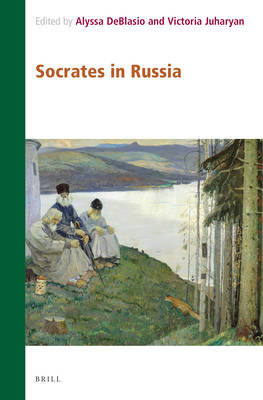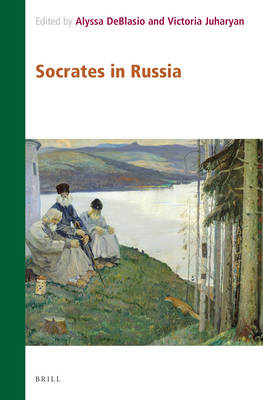
- Afhalen na 1 uur in een winkel met voorraad
- Gratis thuislevering in België vanaf € 30
- Ruim aanbod met 7 miljoen producten
- Afhalen na 1 uur in een winkel met voorraad
- Gratis thuislevering in België vanaf € 30
- Ruim aanbod met 7 miljoen producten
Socrates in Russia
€ 265,95
+ 531 punten
Omschrijving
This volume explores the influence of the Socratic legacy in the Russian, East European, and Soviet contexts. For writers, philosophers, and artists, Socrates has served as a potent symbol--of the human capacity for philosophical reflection, as well as the tumultuous (and often dangerous) reality in which Russian-speaking and Soviet intellectuals found themselves. The thirteen chapters include surveys of historical periods and movements (the 18th century, Nietzscheanism, and the "Greek Renaissance" of Russian culture), studies of individual writers and philosophers (Skovoroda, Herzen, Dostoevsky, Rozanov, Bely, Narbut, and many others), and investigations of Socratic subtexts (e.g., in Bulgakov's Master and Margarita and Nosov's Neznaika series for children). The volume concludes with a "Socratic Texts" section of new translations. The plurality of these topics demonstrates the continued relevance of the Socratic myth not only for Russian-speaking culture, but for the world.
Specificaties
Betrokkenen
- Uitgeverij:
Inhoud
- Aantal bladzijden:
- 396
- Taal:
- Engels
- Reeks:
- Reeksnummer:
- nr. 5
Eigenschappen
- Productcode (EAN):
- 9789004523319
- Verschijningsdatum:
- 5/10/2022
- Uitvoering:
- Hardcover
- Formaat:
- Genaaid
- Afmetingen:
- 155 mm x 235 mm
- Gewicht:
- 780 g

Alleen bij Standaard Boekhandel
+ 531 punten op je klantenkaart van Standaard Boekhandel
Beoordelingen
We publiceren alleen reviews die voldoen aan de voorwaarden voor reviews. Bekijk onze voorwaarden voor reviews.









